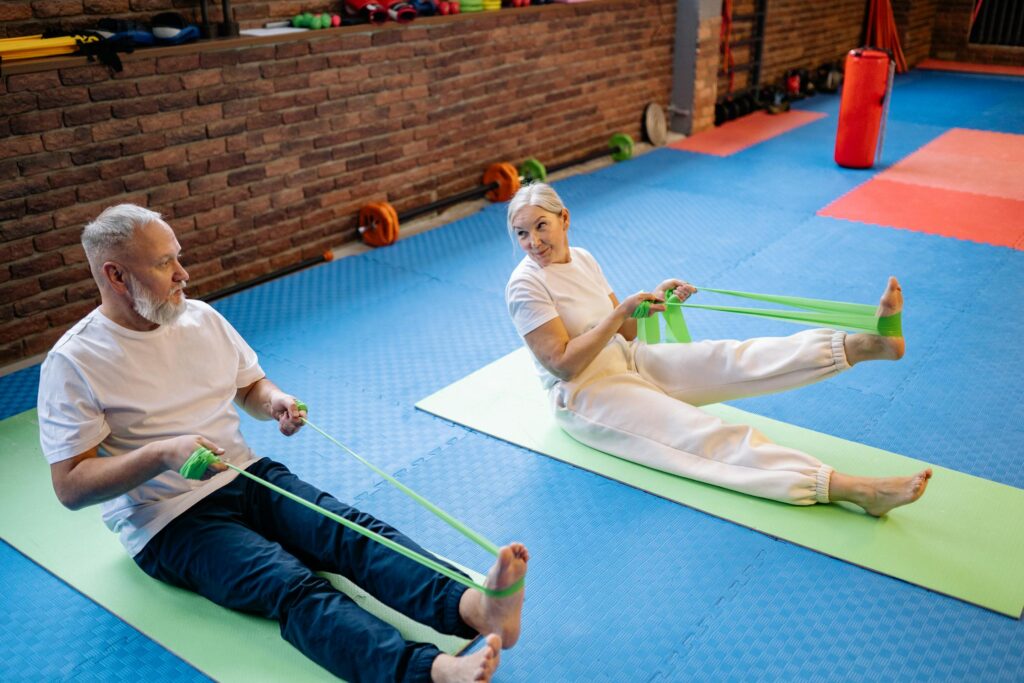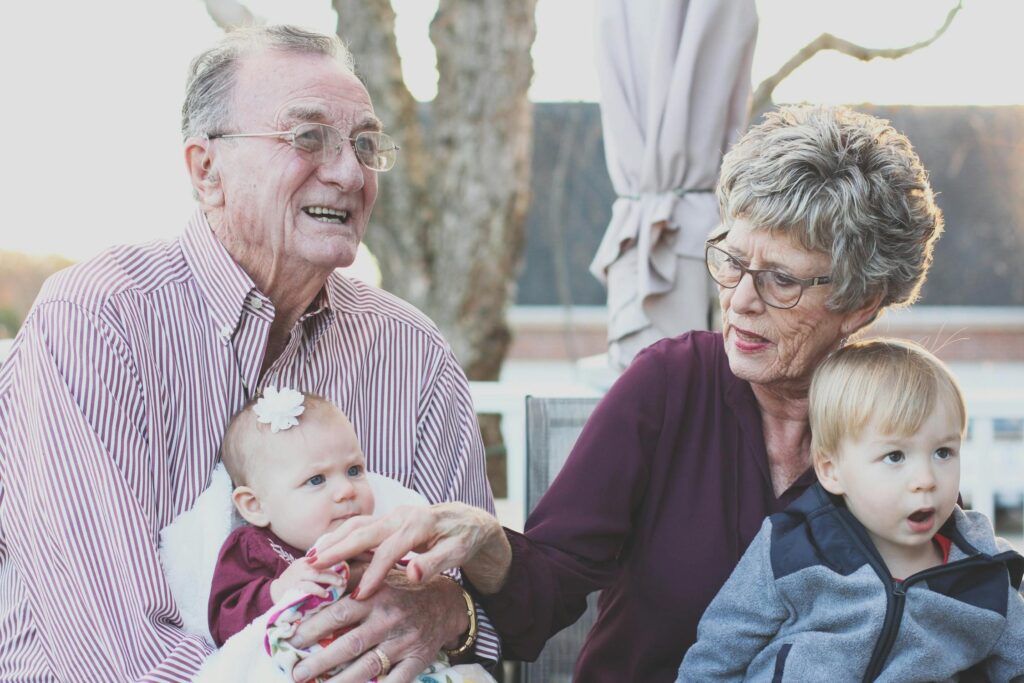News Team member Harleigh Markowitz explores the gendered health disparities related to pelvic floor dysfunction awareness, treatment, and access to care.
The Scientific Pursuit of Aging Happier, Healthier, and Longer
Humans are living longer, but how do we live healthier while we age?
By Justine Borgia
Jeanne Louise Calment lived until she was 122 years old, making her the oldest person who ever lived. She attributed her longevity to chocolate, Port wine, olive oil, and, most importantly, a life of no stress. She rode her bicycle until age 100 and lived unassisted until age 110, after which she maintained a highly independent routine within a nursing home. Her story is evidence that we have the potential to live, and thrive, for much longer than we previously believed.
The lifespan of people across the world has more than doubled within the last century, from 31 years in 1900 to 71 years in 2021. The average life expectancy for every generation saw rapid growth, a success story of public health initiatives like vaccines and increased access to healthcare. Evidence that we can live much longer than 71 years, like Calment’s remarkable 122 years, has the science community becoming more motivated to extend the population’s lifespan.
Aging has been identified as the greatest risk factor for many morbidities. The Potocsnak Longevity Institute at Northwestern University Feinberg School of Medicine hopes to make this process healtheir across the world. Its labs study populations that are more susceptible to poor aging, like those with HIV or alcoholism, as well as those who exhibit some kind of resistance. They also look at innovating ways of treating and preventing diseases of aging like cancer, Alzheimer’s, and cardiovascular disease. The researchers at Northwestern hope to not only extend the lifespan but also the healthspan of the population.
“Healthspan is the duration of healthy years lived, and it really focuses on the idea that we might be able to push back the onset of aging-related disease and morbidity,” says Dr. Douglas Vaughan, the director of the Potocsnak Longevity Institute and Chair of the Department of Medicine. Dr. Vaughan and his colleagues are focused on not only years lived, but also years lived healthfully. Researchers here, and across the world, are making this shift towards a focus on improving healthspan by measuring biological aging.

Biological age is a measure of how much a person has physically and mentally aged, independent of how many years they actually lived. “There are a variety of tools that we have now to measure biological age. Some of them are functional and physiological. Some of them involve molecular profiling and some of them involve AI-based clocks. So, when used in combination, we can get a whole spectrum of different kinds of information around biological age,” Vaughan says.
“Your biological age does not always match up with your chronological age,” he adds.
Vaughan became interested in biological aging through his work with the Indiana Swiss Amish community, a group of people that carry a genetic variant that appears to prevent different kinds of aging. This mutation lowers the concentration of the PAI-1 protein in the blood, which Vaughan found to be protective against aging. Specifically, those with the mutation live 10% longer and experience a decreased risk of diabetes.
The Potocsnak Institute collaborates with groups worldwide to develop unique and accurate measurements of biological age, especially those keen on leveraging AI-based models. For example, Vaughn’s team works with a group in New Zealand called Toku Eye, which has analyzed tens of thousands of human retinal images using machine learning to determine biological age.
“Now we’re going to be testing all kinds of things rigorously, respectively, empirically to see if we can find ways to slow down the pace of aging in people,” Vaughan says. The Potocsnak Institute is able to more accurately test aging interventions, as the science of measuring aging is becoming much more precise than just chronology.
The increased efforts for healthy aging worldwide have already led to a major shift in demographics. In fact, the 65 or older age group is now the fastest growing population in the United States. As such, researchers are also interested in the quality of life of the older population.

“The overall goal is to really inform how to help us age well and stay engaged, and age with purpose and choice,” says Dr. Camille Vaughan, the director of the Emory Center for Health in Aging and a professor at the Emory School of Medicine. ( Dr. Camille Vaughan is no relation to Dr. Doug Vaughan).
The center promotes the physical, psychological, social, and spiritual health of this growing population of older adults. Its pilot grant program provided $25,000 to innovative projects with a mission to promote well-being in older adults. One of these awardees, Dr. Boghuma Titanji at the Emory School of Medicine, used the award to study the effects of mindfulness on the immune systems of those with HIV, a group at risk for unhealthy aging. The study found significant molecular changes associated with mindfulness, suggesting that intentional behavioral changes can improve aging.
The Emory Center for Health in Aging’s interdisciplinary research further emphasizes aging with a purpose as a preventive measure against age-related morbidity. In fact, the Emory Healthy Aging Study, published in 2020, found that a greater perceived purpose in life in the older population was associated with diminished cognitive decline.
The Center also found that learning creates similar benefits for older adults. As such, they put their research into practice to interface with and aid older adults in the Atlanta community. Collaborative programs like OSHER Lifelong Learning, which allows Emory medical students to give lectures to residents in senior living homes, can teach the older population how to take care of their health.
The research done by these aging institutes will benefit those in all stages of life. The rapid advancements made in aging research means that any one of us can live longer, healthier lives than generations before. “It’s not just about what I’m doing for my parents or my grandparents, it’s really what are we doing to also be ready for ourselves as we age and age with health,” Camille Vaughan says.

